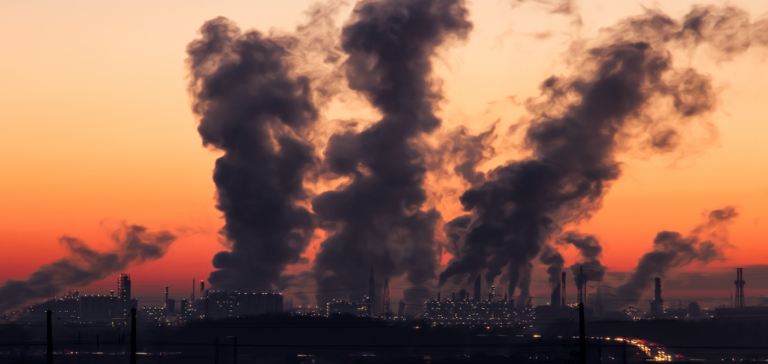What will France need to look like in 2030 if it is to meet its target of reducing greenhouse gas emissions by 50% by 2030 compared with 1990 levels? New figures have just been published by the government’s General Secretariat for Ecological Planning (SGPE).
A promising ecological future: the 2030 roadmap for reducing greenhouse gas emissions
The complete ecological planning strategy, sector by sector, will be presented “at the end of the summer”, Emmanuel Macron reiterated on Monday in an interview on TF1 and France 2, asserting that it should enable the country to meet its climate objectives while “strengthening” its independence and creating jobs.
Targets will be set for each sector, along with resources, he asserted: “In ecology, several billion euros” will be invested from next year, added the President, citing in particular the opening of factories for electric batteries, offshore wind turbines and solar panels, the development of the circular industry (recycling) and the “structuring of professionals” in the thermal renovation of buildings.
The aim: to reduce France’s greenhouse gas emissions from 403.8 million tonnes of CO2 equivalent (Mt CO2e) in 2022 to 270 million in 2030. The new “dashboard” published by the SGPE breaks down these savings more precisely than before.
Towards an ambitious energy transition: objectives and challenges for key sectors
According to the government, this is the biggest potential reduction. The total share of renewable energies in electricity generation is set to rise from 26% to 34% by 2030. Solar power will have to be tripled, offshore wind power nearly quadrupled, while onshore wind power will have to increase by more than 55%. Biogas is set to increase from 8 terawatt-hours in 2020 to 50 in 2030. Steel mills, cement plants and other primary industries will have to drastically reduce their emissions, not least through CO2 capture, a technology that is still in its infancy.
The 50 sites with the highest emissions, excluding refining, will have to reduce their emissions from 43 Mt CO2e in 2022 to 25, and the rest of the industry from 33 to 20. Targets for reducing emissions from refining activities, which are particularly polluting, are not specified.
The tertiary sector will also have to learn to do without fuel oil (over 80% reduction requested) and gas (around -40%) via its boilers, while the French government is considering whether to ban the installation of all new gas boilers.
Transport transition and energy-efficient building renovation: ambitious targets for 2030
The government plans that 66% of new cars sold in 2030 will be electric, compared with 15% today (in 2035, according to a European law, the figure will be 100%). The government is counting on an explosion in car-sharing, a huge source of savings: while the number of car-sharing journeys per day is 21,000 in 2023, this should rise to 196,000 by 2030.
The number of cycle paths should reach 150,000 kilometers by 2030, compared with 61,000 by the end of 2023, while the share of journeys made by train and urban public transport should also increase, by 20 billion passenger-km for the former and 15 billion for the latter. The government acknowledges that air traffic can only be kept under control: in mainland France, it will rise from 237 billion passenger kilometers in 2019 to 265 in 2030 (a slightly smaller increase than between 2015 and 2019).
Annual domestic emissions from the building sector will have to be cut by more than half, using two major levers. On the one hand, the government hopes to see a tenfold increase in the number of comprehensive home renovations via MaPrimeRenov, up to 900,000 a year by 2030. In addition, the proportion of primary residences heated with fuel oil will have to be divided by three between 2020 and 2030, to reach 3.6%. As for the future of gas-fired boilers in the residential sector, the government is refraining from making any public forecasts.
Green crops and responsible livestock farming: towards ecologically sustainable agriculture
The secretariat anticipates that 21% of farmland will be organic by 2030, compared with 11% in 2022, which will reduce the need for nitrogen fertilizers (whose main ingredient is fossil gas). Other levers: fewer diesel tractors, and doubling the number of leguminous crops. With regard to livestock farming, methane emissions (cow burps) are to be reduced to 32.5 million tonnes per year, compared with 36.9 in 2022. But no meat consumption reduction target is given…
What next? These initial indicators “will be supplemented, over the course of the year, by more comprehensive indicators, to cover the other challenges of ecological planning (biodiversity, adaptation, natural resources, etc.)”, says the SGPE.





















